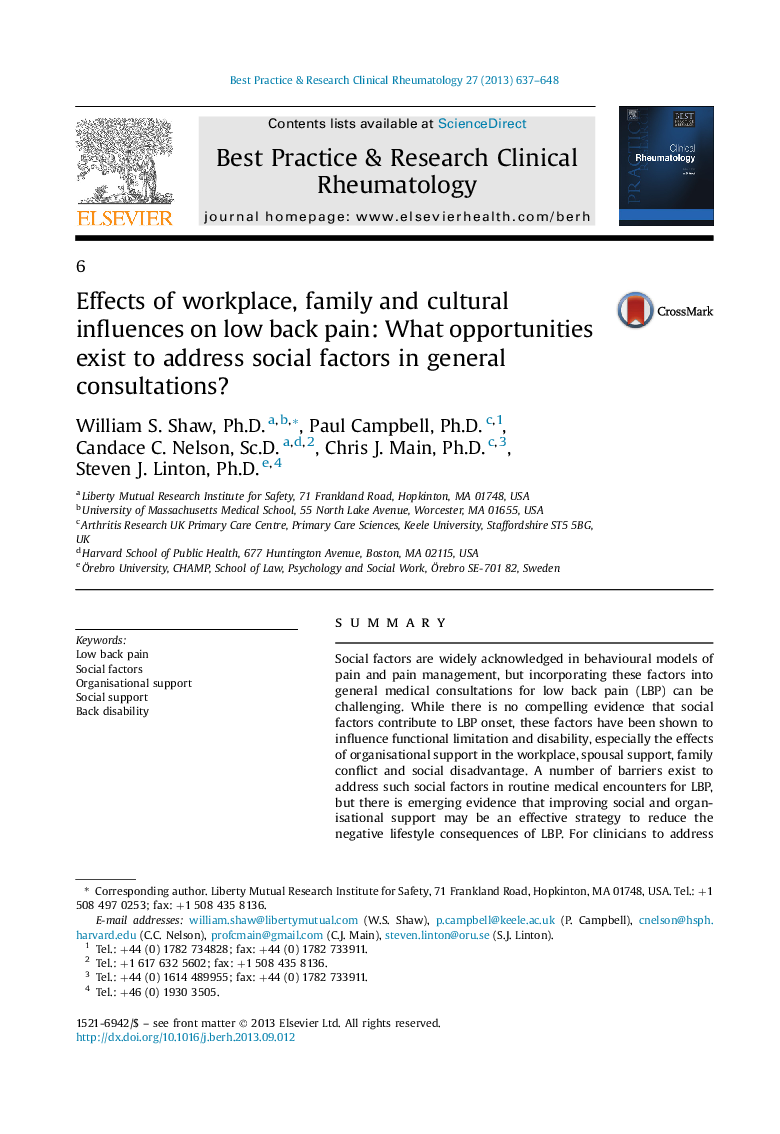| Article ID | Journal | Published Year | Pages | File Type |
|---|---|---|---|---|
| 6114759 | Best Practice & Research Clinical Rheumatology | 2013 | 12 Pages |
Abstract
Social factors are widely acknowledged in behavioural models of pain and pain management, but incorporating these factors into general medical consultations for low back pain (LBP) can be challenging. While there is no compelling evidence that social factors contribute to LBP onset, these factors have been shown to influence functional limitation and disability, especially the effects of organisational support in the workplace, spousal support, family conflict and social disadvantage. A number of barriers exist to address such social factors in routine medical encounters for LBP, but there is emerging evidence that improving social and organisational support may be an effective strategy to reduce the negative lifestyle consequences of LBP. For clinicians to address these factors in LBP treatment requires a clearer psychosocial framework in assessment and screening, more individualised problem-solving efforts, more patient-centred interventions involving family, peers and workplace supports and a less biomechanical and diagnostic approach.
Related Topics
Health Sciences
Medicine and Dentistry
Immunology, Allergology and Rheumatology
Authors
William S. Ph.D., Paul Ph.D., Candace C. Sc.D., Chris J. Ph.D., Steven J. Ph.D.,
